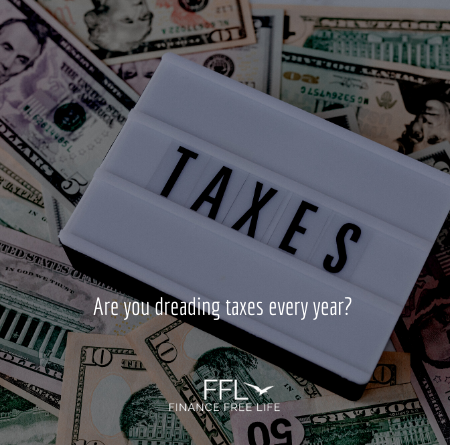6 Tips for a Stress-Free Tax Seasons
Another tax season came and went. This year was definitely different for many with the recent world chaos. With 2021 nearly half over, why not think about next season now? It’s true that taxes can be confusing, convoluted, and intimidating — there’s a reason people hire skilled tax professionals, after all. But filing your taxes doesn’t need to be a stressful process. Here are five tips from the Finance Free Life that will take the stress out of this tax season along with advice to make next year even easier.
1. Don’t Procrastinate
Nothing contributes to stress quite like a looming deadline. In addition to risking IRS penalties, waiting until the last minute to file taxes increases the odds that you make an expensive mistake in your haste. That includes missing valuable tax credits and deductions, forgetting to claim miscellaneous and non-taxable income, or claiming the wrong filing status.
2. Understand Extension Rules
Can’t file by the deadline? Filing an extension gives taxpayers an additional six months to submit returns without incurring a penalty. However, while you can delay filing with an extension, tax payments are still due on schedule. You may also be required to file a separate extension for state taxes.
3. Ensure Free File is Really Free
Have you ever prepared your tax return under a free file program only to end up paying in the end? Taxpayers with an adjusted gross income under $72,000 are eligible for free federal returns. However, finding those free options can be tricky. To be sure that the filing software you use is truly free, use the IRS Free File page to get started.
4. Choose the Right Tax Forms
Form 1040 is the standard Individual Income Tax Return that all taxpayers file. However, you may need to file additional tax forms depending on your circumstances, on top of keeping an eye on your withholdings. Common tax forms include Forms 1098 to report educational costs and interest paid to mortgage and student loan lenders; Forms 1095 to report health coverage; and Form SSA-1099 to report Social Security income.
5. Note Changes to Form 1099
Independent contractors and businesses that hire them should also take note of changes to Form 1099 and 1099 filing: As of 2020, Form 1099-MISC is only used to report miscellaneous income. Meanwhile, payments to freelancers, independent contractors, and gig workers are now reported on Form 1099-NEC. Form 1099-NEC must be submitted to the payee by January 31 and the IRS by February 1. Businesses that only occasionally use contractors can use the Filing Information Returns Electronically system. However, if independent contractors are a regular part of your business, it’s worth using an online payroll service to efile 1099 forms.
6. Use Accounting Software to Help With Taxes
Here’s one for the business owners: If you run a business and employ people to work for you, then you probably have a payroll system in place. However, payroll and accounting software can automate many aspects of your payroll process — including filing and paying your payroll taxes. QuickBooks Payroll even offers tax penalty protection, which will give you a little peace of mind if you’re unexpectedly hit with a penalty. Automating your payroll taxes will free you up to handle other areas of your business — and your personal taxes.
How to Prepare for Next Tax Season
These tips will help you get through the upcoming tax season, but it’s never too soon to prepare for next year. Whether you’re a salaried employee or a small business owner, maintaining accurate records throughout the year simplifies your job at tax time. Information you’ll need on hand to file includes:
- A copy of last year’s tax return.
- IRS-issued Identity Protection PIN.
- Dates of birth and Social Security Numbers for yourself, your spouse, and dependents.
- Tax forms from employers, freelance clients, and financial institutions.
- Interest statements.
- Information about Economic Impact Payments.
- Records of cash and non-cash charitable donations.
- Receipts for childcare, qualified educational expenses, K-12 educator expenses, and medical expenses.
- Documentation of retirement and health savings account contributions.
- Any other receipts necessary to support tax deductions.
Still overwhelmed by the prospect of filing your own taxes? If you want a truly stress-free tax season, the best thing you can do is hire a tax professional. Not only do tax professionals handle the hassle of tax filing on your behalf, but tax preparation expertise also ensures you get the maximum refund possible. Whether you’re a hard-working employee, an independent contractor, or a small business owner, explore the Finance Free Life for more tips on keeping your finances in tip-top shape.

